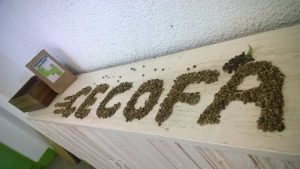
CECOFA: Robusta from Uganda
In 2015, CECOFA applied for marketing support which the TDC was offering at the time to Central African coffee cooperatives.

In 2015, CECOFA applied for marketing support which the TDC was offering at the time to Central African coffee cooperatives.

Belgium’s governmental development cooperation (BTC) for agricultural projects increasingly uses value chain approaches. To start, a particular crop’s value chain – not only the production on the field but also the next stages – is analysed. After all, what’s the use of a high-quality and sustainable product if it cannot be sold? Where can farmers find potential customers and how should they communicate with them? In the south of Morocco a project in the saffron and dates value chains is in its third year. It is the first BTC project in which the Trade for Development Centre (TDC) has been involved from its formulation because of its marketing expertise with producer groups in the South. Midway this project we drew up a state of affairs.
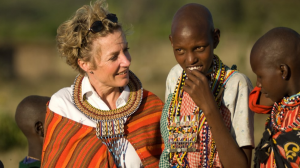
We all know fair trade bananas, coffee, chocolate… but do you know about fair tourism? It is less known, but booming! The United Nations declared 2017 as the International Year of Sustainable Tourism for Development recalling the potential of tourism to advance the universal 2030 Agenda for Sustainable Development and the 17 Sustainable Development Goals (SDGs). The Trade for Development presents presents 4 community-based tourism projects that it supports.

United we stand, divided we fall. This motto defines what NOGAMU is trying to promote among farmers. To ensure that Ugandan farmers are able to sell their harvest at a fair price and grow their business, the National Organic Agricultural Movement of Uganda (NOGAMU) helps them to become organised into groups or cooperatives and to become more empowered. As a part of a cooperative, a farmer has the security to sell his harvest at a better price and can also learn to farm more sustainably.

Ever heard of fair cosmetics? Thanks to these personal care and beauty products, producers are able to improve their own, and their family’s, living conditions.
Products made by and for women, combining ethics and aesthetics. A number of brands that attracted our attention are listed below.
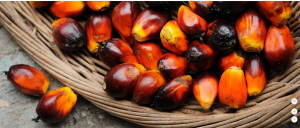
Palm oil has unique properties which is why it is very much coveted by the food industry. But palm oil is also often associated with rampant deforestation in Indonesia and Malaysia. To prevent this damage to the environment, the Belgian Alliance for Sustainable Palm Oil aims to work towards more sustainable cultivation.

TDC in collaboration with two coffee cooperatives, a local NGO and BTC supported victims of sexual violence in eastern Congo. A trusted local player, the coffee cooperatives were able to restore the dignity of the victims and enable their economic and social reintegration.
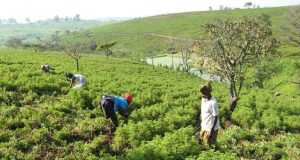
Did you know that the north-east of the Democratic Republic of Congo is home to one of the biggest aromatic oil producers? Avituri, a fair and organic cultivator and distiller, was able to double its production of geranium oil and expand its offer with other plants such as thyme thanks to TDC’s financial support.
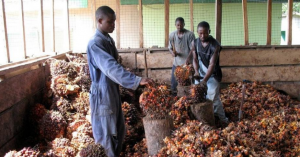
While the palm oil industry is still investigating how to stop the destruction of human and environmental resources in South East Asia, fair alternatives already exist, such as palm oil projects in Ghana, Togo and Ecuador which have been certified and have obtained the Fair for Life label.
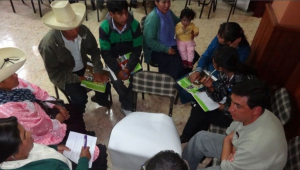
In 1965 Belgian and Peruvian ministers signed a first development cooperation agreement. Half a century later the Belgian development agency is still operating in the Andes country where the Trade for Development Centre supports five fair and sustainable trade projects. Reason enough to go and visit the cocoa farmers, physalis producers, loggers, textile workers and miners behind these projects.

In 2015, CECOFA applied for marketing support which the TDC was offering at the time to Central African coffee cooperatives.

Belgium’s governmental development cooperation (BTC) for agricultural projects increasingly uses value chain approaches. To start, a particular crop’s value chain – not only the production on the field but also the next stages – is analysed. After all, what’s the use of a high-quality and sustainable product if it cannot be sold? Where can farmers find potential customers and how should they communicate with them? In the south of Morocco a project in the saffron and dates value chains is in its third year. It is the first BTC project in which the Trade for Development Centre (TDC) has been involved from its formulation because of its marketing expertise with producer groups in the South. Midway this project we drew up a state of affairs.

We all know fair trade bananas, coffee, chocolate… but do you know about fair tourism? It is less known, but booming! The United Nations declared 2017 as the International Year of Sustainable Tourism for Development recalling the potential of tourism to advance the universal 2030 Agenda for Sustainable Development and the 17 Sustainable Development Goals (SDGs). The Trade for Development presents presents 4 community-based tourism projects that it supports.

United we stand, divided we fall. This motto defines what NOGAMU is trying to promote among farmers. To ensure that Ugandan farmers are able to sell their harvest at a fair price and grow their business, the National Organic Agricultural Movement of Uganda (NOGAMU) helps them to become organised into groups or cooperatives and to become more empowered. As a part of a cooperative, a farmer has the security to sell his harvest at a better price and can also learn to farm more sustainably.

Ever heard of fair cosmetics? Thanks to these personal care and beauty products, producers are able to improve their own, and their family’s, living conditions.
Products made by and for women, combining ethics and aesthetics. A number of brands that attracted our attention are listed below.

Palm oil has unique properties which is why it is very much coveted by the food industry. But palm oil is also often associated with rampant deforestation in Indonesia and Malaysia. To prevent this damage to the environment, the Belgian Alliance for Sustainable Palm Oil aims to work towards more sustainable cultivation.

TDC in collaboration with two coffee cooperatives, a local NGO and BTC supported victims of sexual violence in eastern Congo. A trusted local player, the coffee cooperatives were able to restore the dignity of the victims and enable their economic and social reintegration.

Did you know that the north-east of the Democratic Republic of Congo is home to one of the biggest aromatic oil producers? Avituri, a fair and organic cultivator and distiller, was able to double its production of geranium oil and expand its offer with other plants such as thyme thanks to TDC’s financial support.

While the palm oil industry is still investigating how to stop the destruction of human and environmental resources in South East Asia, fair alternatives already exist, such as palm oil projects in Ghana, Togo and Ecuador which have been certified and have obtained the Fair for Life label.

In 1965 Belgian and Peruvian ministers signed a first development cooperation agreement. Half a century later the Belgian development agency is still operating in the Andes country where the Trade for Development Centre supports five fair and sustainable trade projects. Reason enough to go and visit the cocoa farmers, physalis producers, loggers, textile workers and miners behind these projects.